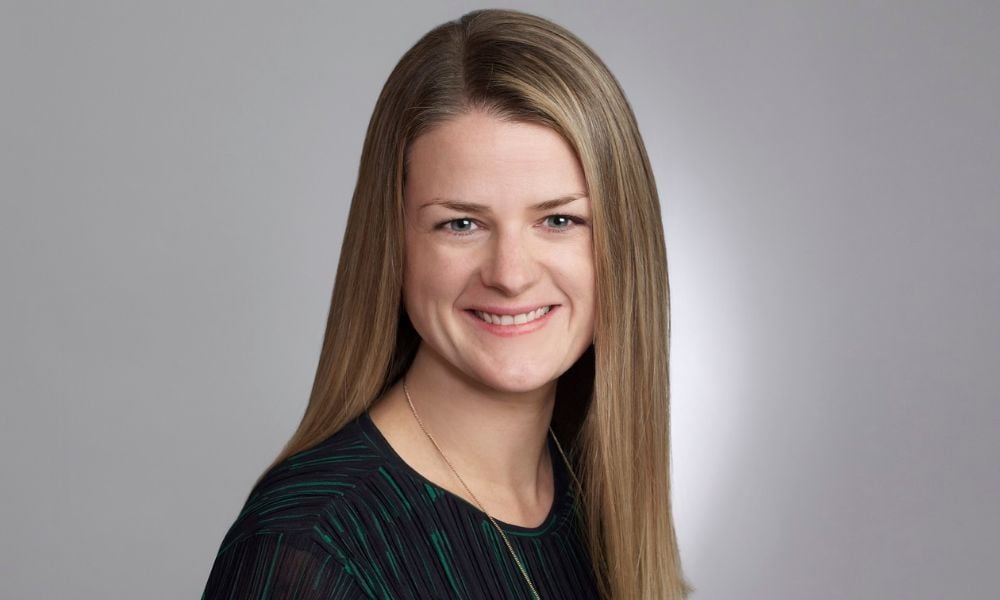'Piecemeal and patchwork approach' to this area of medicine not workable, says Gluckstein's Jan Marin

This article was created in partnership with Gluckstein Personal Injury Lawyers
Advances in modern medicine and technology can substantially improve the odds of conceiving for the one in six Canadians who struggle with infertility.
The process is difficult and there is a special vulnerability that comes with being a fertility clinic patient. The hopes and dreams of individuals hoping to create a family are in the hands of a largely unregulated industry.
“Over the past few years, I’ve seen a considerable increase in patients seeking legal support because fertility clinic negligence has caused significant physical, mental and emotional harm,” says Jan Marin, a lawyer who focuses on professional negligence matters with a particular interest in medical malpractice litigation in the Toronto office of Gluckstein Personal Injury Lawyers
“The process is costly and often physically and emotionally challenging,” Marin says. “On top of that it is very difficult to accurately compare the success rates between clinics, physicians or treatment options.”
Contributing to patients’ conundrums are varying costs from province to province and clinic to clinic; and the promotion of service add-ons to patients who have no way to assess whether the additional services actually increase the success rates.
A lack of regulatory oversight compounds the issue.
“The privatization of fertility services means that individuals and corporations are often in control of essential health and safety protocols,” Marin says. “Fertility treatment remains unregulated in many respects, and there’s very little oversight of practices, methodologies or safety measures, and few mandatory reporting mechanisms.”
In 2004, with the passage of the Assisted Human Reproduction Act, the federal government passed legislation to regulate some aspects of fertility clinic technologies and processes and to prohibit others. But in 2010, the Supreme Court of Canada ruled that some of the law’s provisions were unconstitutional as they fall under provincial regulatory responsibilities. To date Ontario has not enacted any significant regulation in this arena.
Under the current regulatory regime some aspects of the process are heavily regulated, including sperm and ovum donation, surrogacy, and use of embryos. There is currently no system for regulating or licensing embryologists, mandatory fertility clinic error reporting, or specialized fertility clinic licensing.
Hospital based or affiliated clinics are bound by the Public Hospitals Act; however, private clinic accreditation is voluntary. Private clinics are subject only to the limited oversight of the College of Physicians and Surgeons of Ontario’s Out of Hospital Premises Inspection Program.
“When things go wrong at a facility clinic, they can go very wrong,” Marin says. In one instance, an Ottawa area doctor allegedly used the wrong sperm, including his own, in the conception of many children, leading to a class action settlement for some 200 patients. Other examples of fertility clinic negligence include losses of stored ovum, sperm or embryos, misuse of biologic material, processing and labelling errors, and large-scale freezer failures.
In 2018, Gluckstein was involved in a class action against ReproMed, also known as the Toronto Institute of Reproductive Medicine, on behalf of a woman who lost 65 eggs in a malfunctioning freezer. The firm negotiated a settlement for her and others who lost their genetic material.
Fertility clinic errors can lead to the inability of patients to have a child or the rare and tragic discovery that a child is not genetically related to one or both parents following birth. Marin notes that, “unbelievably, there is no mandatory reporting to a specialized fertility oversight organization to understand how these errors have occurred and to ensure lessons are learned.”
“Many patients have suffered multiple pregnancy losses or setbacks prior to seeking fertility care. This reality coupled with the intensely personal and profoundly hopeful decision to seek help via AHR makes errors, when they happen, devastating,” Marin says. “It is difficult to imagine the devastation for these families, who trusted these facilities to manage the creation of their family and whose hopes and dreams have become a nightmare.”
Marin recommends that fertility patients exercise the following cautions:
- Treat feeling rushed or like a number at a clinic as a red flag;
- Ask questions if there are “add-on” procedures or steps that were not expected or have not been fully explained;
- Be aware at critical stages of your treatment, including the implantation of embryos, ensuring, for example, that your name and date of birth have been confirmed prior to any implantation;
- Finally, patients who suspect they’ve been harmed by a fertility clinic’s negligence should seek advice from an experienced medical malpractice lawyer promptly: there are time limits beyond which a patient can lose the right to sue.
Recently, a submission was made to the house of commons by Maureen McTeer — a lawyer specializing in health law and public policy, who authored Fertility: 40 Years of Change last year — and Dr. Art Leader — former fertility doctor and professor at the University of Ottawa — calling for a full and comprehensive parliamentary review of the federal Assisted Human Reproduction Act. Marin is supportive of any movement towards more oversight, calling it essential.
“Patient safety must be prioritized to ensure errors are not repeated — an unregulated piecemeal and patchwork approach to this area of medicine is not workable.”










